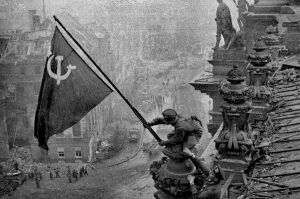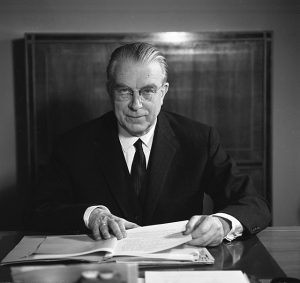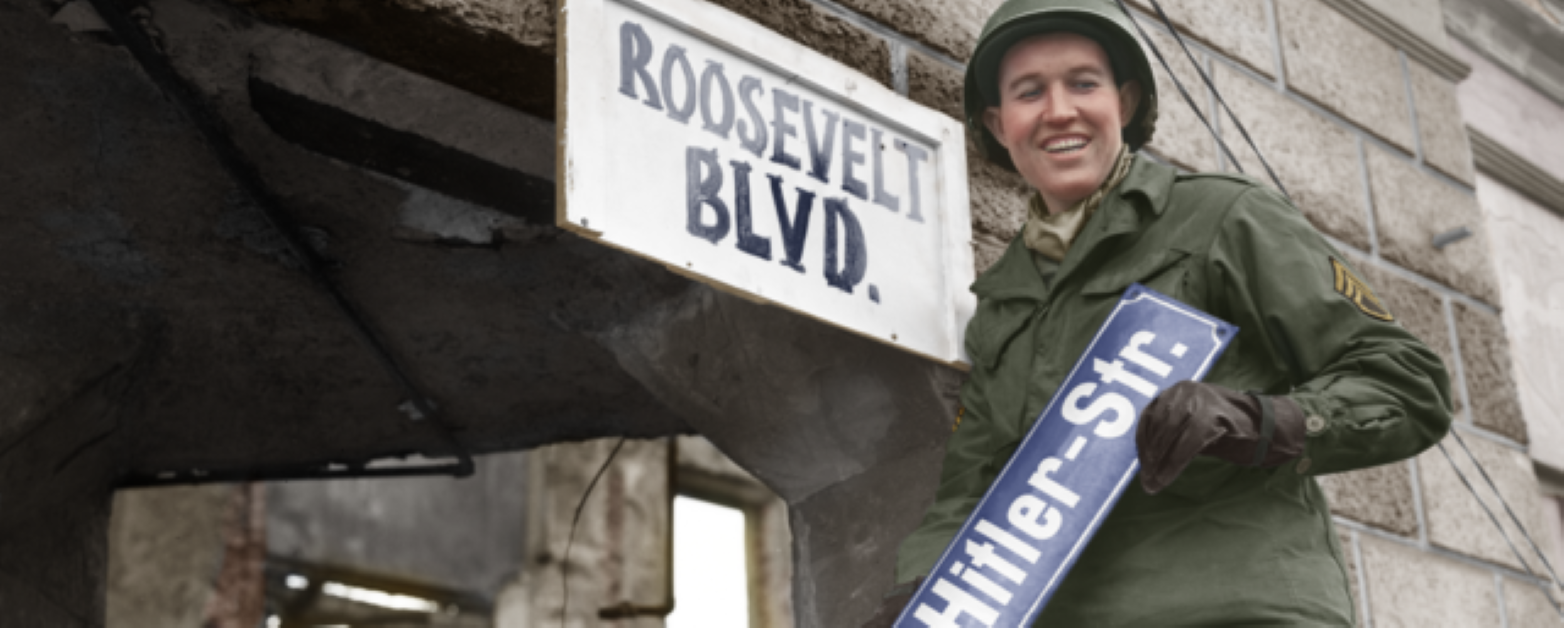As the dust settled on Europe following the end of the second world war, the question remained as to what to do with last belligerent to surrender: Germany.
With the liberation of Berlin on 2 May, 1945 by the Red Army, and the unconditional surrender of Nazi Germany on 8 May, Allied victory in Europe was secured.

Germany, as well as its capital Berlin, was divided into four zones of occupation, one for each of the main Allied powers: the USSR, the US, the UK, and France.
The territory east of the Oder-Neiẞe came under the administration of a reconstituted Polish state. This border was only finally recognised by West Germany – officially the Federal German Republic – in 1970.
The Allied leaders met for the first official post-war conference at Potsdam in July 1945. The conference resolved to weed out the economic basis of Nazism – German monopoly capitalism – and preserve a unified Germany as a neutral zone between west and east.
The main principles of reconstruction were the so-called “4 Ds”:
- Denazification – the removal of fascists from relevant positions and the punishment of war crimes.
- Demilitarisation – the disarming of Germany and the destruction of the German weapons industry.
- Decentralisation – the crushing of the centralisation of economic power of the German monopoly capitalists.
- Democratisation – the rebuilding of the republic based on participation and democratic rights.
At the time, the USSR had no aspirations of building socialism in their zone of occupation – the priority was to build a democratic and anti-fascist order.
In the east, the monopolies were expropriated, and war criminals were dispossessed, convicted, and excluded from all important positions.
Approximately 10,000 businesses were expropriated without compensation and a strong public sector was build up along the remaining private sector.
However, in the western zone, only some of the resolutions of Potsdam were followed. Where those resolutions interfered with capitalist property, they were avoided.
The expropriation initiatives were banned, and many Nazis regained important positions. For example, Hans Globke, one of the lawyers responsible for the drafting of the Nuremberg Laws, rose to prominence after the war as an aide to Conrad Adenauer, the first prime minister of the new Federal Republic.

It was obvious however that the German working class wanted a similar denazification process as was being carried out in the east. In November 1948, both the American and British zones were hit by general strikes. Besides demanding higher wages, they also demanded the nationalisation of key industries.
After American tanks were called in to put down the uprising, general strikes were outlawed. This remains the case to this day.
With the western imperialists certain of the onset of the cold war, any pretence of cooperation with the USSR was abandoned. In 1948, the North Atlantic Treaty Organisation – NATO – was founded, and the partition of Germany was assured.
On 23 May 1949, the Federal Republic of Germany was founded when the American, British, and French zones were unified. On 7 October 1949, the rival German Democratic Republic was established in the Soviet zone.
Potsdam, and its idea of a neutral Germany straddling the east and west had failed. West Germany was quickly integrated into a newly emerged NATO, and developed a new imperialist dominance in Europe. In the east, the GDR quickly began the task of building socialism.
But the special conditions of German socialism proved difficult until the very end. The simple fact that the German working class didn’t liberate themselves, but were rather liberated by another power, created a distrust that among the populace of the leadership, which pervaded the state till its last breath.

